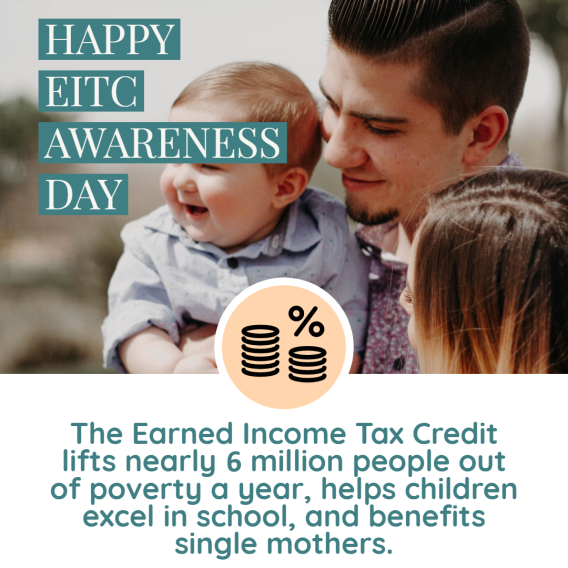By Aaron Satyanarayana, 2019 Get It Back Campaign Intern
Colleges and universities can be valuable partners for Volunteer Income Tax Assistance (VITA) and tax credit outreach efforts. However, college campuses are more than just a source for volunteers or computers. Colleges have community recognition and relationships that can deepen the work of free tax filing programs.
Here are six ways that you can work with colleges to expand the reach of your VITA and tax credit outreach efforts.
1. Reach out to graduate student parents
Around one in five people enrolled in doctoral programs have children. Additionally, nearly half of women enrolled in master’s programs have children.
Most graduate students rely on stipends from teaching or research assistant positions as their primary source of financial support. In 2017, the median annual wage for graduate assistants was $32,460. Stipends for master’s students are often lower. Since graduate stipends are designed to cover the living expenses of single students, some graduate student families may experience financial stress.
Universities can inform graduate students about tax credits like the Earned Income Tax Credit (EITC), the Child Tax Credit (CTC) and free tax preparation through graduate employee unions.
2. Engage undergraduate students who are parents
Student parents make up about 25 percent of undergraduates in the nation. Half of these student parents have children ages 5 or younger and most have household incomes under $30,000, making them potentially eligible for the EITC, the CTC, and the Child and Dependent Care Credit.
Since many undergraduate student parents have younger children, they may have increased child care needs. Universities can help identify campus and community resources that student parents might use. Some colleges and universities have daycares, pre-schools, or support groups for parents that can serve as distribution channels for tax credit and VITA information.
3. Inform classified university staff
Classified employees, like custodians, campus security, and support staff typically earn $30,000 to $35,000, making them potentially eligible for the EITC and free tax preparation. On average, classified workers make up around 45 percent of university employees.
Universities can work with unions that classified staff may be members of to distribute information about tax credits and free tax filing. Alternatively, colleges can send payroll stuffers or electronic notices with tax credit and free tax filing info to reach classified staff who may not be part of a union.
4. Utilize university networks to expand outreach and VITA.
Universities may have a web of satellite campuses in other cities, partnerships with area community colleges, or affiliated institutions that serve the community, such as a hospital. Making use of these networks provide additional channels for tax outreach and can help to extend the reach of free tax filing programs.
The University of Georgia coordinates a virtual VITA program through its Cooperative Extension System which has an office in each county of Georgia. During the tax filing season, 18 participating extension offices serve as intake sites for rural Georgians. VITA volunteers on campus meet with clients virtually to file their returns.
5. Offer academic credit for VITA participation.
Providing students with academic credit for volunteering with a VITA site can help with student volunteer recruitment and retention. Some colleges offer credit for participating in tax preparation training and volunteering at a site. University of Wisconsin made participation in VITA a course requirement for accounting majors.
Working with a college to provide academic credit for VITA participation can help establish a consistent pipeline for student volunteers at free tax programs. Reach out accounting faculty. A faculty member can assist in embedding VITA into a course curriculum or developing a VITA practicum.
6. Develop a VITA service-learning project.
VITA is an ideal service-learning project to engage accounting students and campus service clubs or organizations. Students gain relevant work experience through VITA and learn by volunteering alongside professionals in the community. For community-service club members, VITA offers a variety of roles to serve.
Connect with campus chapters of Beta Alpha Psi, the academic honor society for accounting majors, or Rotaract, a community service club to share VITA with students who are seeking volunteering and service-learning opportunities.






